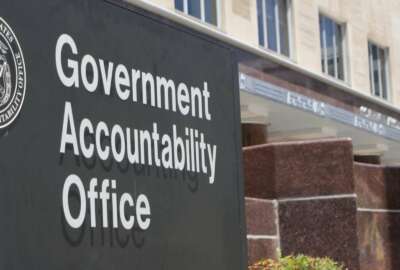Hubbard Radio Washington DC, LLC. All rights reserved. This website is not intended for users located within the European Economic Area.
White House appoints leader of its response to mysterious ‘Havana Syndrome’
In today's Federal Newscast, the Biden administration names a top official to lead an interagency response to Havana Syndrome.
To listen to the Federal Newscast on your phone or mobile device, subscribe in PodcastOne or Apple Podcasts. The best listening experience on desktop can be found using Chrome, Firefox or Safari.
- The Biden administration named a top official to lead an interagency response to Havana Syndrome. President Joe Biden is naming the senior director for intelligence programs within the National Security Council to lead the government’s response to what it calls anomalous health incidents. Congress mandated this job under the latest National Defense Authorization Act. Biden is also giving the Defense, State, Justice and Homeland Security departments until Feb. 25 to name their own agency coordinating leads on Havana Syndrome and issue new guidance to employees considered most at-risk. That also applies to the Director of National Intelligence and the CIA.
- In order to help agencies fill vacancies in support of the Bipartisan Infrastructure law, the Office of Personnel Management is authorizing the use of excepted service Schedule A appointments. Agencies can use this authority to appoint individuals to roles involved in implementation of the Infrastructure Investment and Jobs Act, like engineers and climate scientists. Schedule A appointments streamline the hiring of persons with disabilities who may otherwise face barriers to federal employment.
- The Office of Management and Budget is one step closer to having permanent leadership. Shalanda Young, the nominee to be OMB director, and Nani Coloretti, the nominee to be deputy director at OMB, sailed through their Senate nomination hearings yesterday. Testifying before the Senate Homeland Security and Governmental Affairs Committee, Young promised to address the growing problem of improper payments. Coloretti said her experience at the Treasury, and Housing and Urban Development departments will help address IT modernization challenges, particularly at the IRS.
- The clock is ticking for Congress to avert a government shutdown. Lawmakers have until Feb. 18 to pass appropriations bills for fiscal 2022, or another continuing resolution. The National Active and Retired Federal Employees Association is urging Congress to pass a comprehensive spending package, and warns that a shutdown or another CR would hamper federal operations. Senate Majority Leader Chuck Schumer (D-N.Y.) recently met with House and Senate appropriations committee members, and says Congress is looking to pass an omnibus spending package ahead of the deadline.
- A federal appeals court struck down a Federal Labor Relations Authority decision that set a higher bar for when agencies needed to negotiate with their unions. The FLRA decided in 2020 that agencies should negotiate with unions only over management-led policy changes that have a “substantial impact” on employment conditions. That was a higher standard for collective bargaining than what the agency had in place since 1985. The U.S. Court of Appeals for the D.C. Circuit said the FLRA failed to justify how its newer threshold was better than the one being replaced. (Federal News Network)
- USDA joins a small but growing number of agencies laying out plans to bring employees back to the office. Employees at the Agriculture Department have a timetable for when some will be expected to return to the office. USDA sent an email to employees earlier this week outlining dates and plans between now and May. By Feb. 28, USDA expects senior leadership, including political appointees, senior executive service (SES) members and other senior staff to return to the office. Then by March 28, USDA will begin a phased return to the office for employees who do not have remote work agreements. The agency hopes to complete its phased return by the end of May. (Federal News Network)
- The Agriculture Department focuses on food growers where there’s not a farm in sight. Secretary Tom Vilsack names twelve people to the first-ever advisory committee for urban agriculture. It’s part of efforts dating to the Urban Agriculture Act of 2016, to bring more of what Vilsack called a support infrastructure to city dwellers who grow things to eat. The committee’s first meeting, scheduled for late this month, will be open to the public. USDA also provides grants and cooperative development agreements for urban producers.
- The Justice Department recovered nearly three times more money through the False Claims Act in fiscal 2021 than in 2020. The $5.6 billion DOJ took in last year was the most since 2014. DOJ said a majority of the False Claims Act recovery involved the health care industry, including drug and medical device manufacturers, managed care providers and hospitals. Of the $5.6 billion, more than $1.6 billion arose from lawsuits filed under the qui tam provisions of the False Claims Act. Whistleblowers received $237 million for exposing fraud and false claims last year.
- A new report says Software Bills of Material aren’t right around the corner, they’re already here. The Linux Foundation found 3 out of 4 organizations it polled are prepared to use SBOMs to some extent this year. The machine-readable lists are a central component of the Biden administration’s bid to improve software security at agencies. While adoption is expected to ramp up this year, Linux found 40% of organizations are still concerned about industry’s commitment to using the lists. The administration is expected to roll out a plan for using SBOMs as part of the procurement process this year.
- The IRS is planning for taxpayers to verify their identities online with a selfie. But an industry association is telling the agency to reconsider. The IT Acquisition Advisory Council tells IRS Commissioner Chuck Rettig taxpayers should verify their identities through Login.gov, rather than through the third-party vendor ID.me. The council says requiring a selfie from taxpayers to get help online raises privacy concerns, and would create a disadvantage for taxpayers who don’t have access to a smartphone or other technology. (Federal News Network)
- The Department of Homeland Security is in the clear to move forward with a major hybrid cloud contract. General Dynamics Information Technology had protested DHS’ decision to award Perspecta the Hybrid Computing Environment contract. But the Government Accountability Office denied the protest. In a public decision, it rejected GDIT’s argument that its proposal received an unfair evaluation. GAO also shot down the company’s claim that DHS failed to conduct meaningful discussions about the bid. The agency awarded the $2.7 billion cloud contract to Perspecta in October.
- Congress is picking some heavy hitters to investigate better ways to budget in the Defense Department. Leaders of the House and Senate Armed Services Committee are picking entrenched government veterans and a former Silicon Valley CEO for a new commission. The panel is tasked with examining efficient alternatives to the military budgeting process and developing policy recommendations to help the U.S. rapidly field advanced weapons. The lawmakers chose former Pentagon comptroller Bob Hale, former acquisition chief Ellen Lord and previous acting Air Force Secretary Eric Fanning. Raj Shah, a tech businessman and former leader of one of the Pentagon’s innovation hubs, will also be on the panel.
- The Air Force is launching a pilot program to help the aircraft that guzzle the most gas optimize their energy. The Mission Execution Excellence Program will encourage airmen to use efficient best practices without impacting mission. The pilot phase will focus mostly on the C-17 Globemaster III, the Air Force’s largest fuel consuming aircraft.
Copyright © 2024 Federal News Network. All rights reserved. This website is not intended for users located within the European Economic Area.
Eric White
Eric White is news anchor and Federal Drive producer at Federal News Network.
Follow @FEDERALNEWSCAST
Related Stories
GAO: Military provisions could be reducing competition for Defense contracts
Related Topics
2022 NDAA
Agriculture Department
All News
collective bargaining
Defense
Department of Homeland Security
Facilities/Construction
False Claims Act
Federal Drive
Federal Labor Relations Authority
Federal Newscast
General Dynamics Information Technology
Havana Syndrome
Intelligence Community
IRS
Joe Biden
Justice Department
Linux Foundation
Management
Nani Coloretti
National & World Headlines
National Security Council
Office of Management and Budget
Office of Personnel Management
SBOM
Shalanda Young
software bills of materials
taxes
Tom Temin
White House
Workforce
Related Stories
-
Enough with all the hiring authorities already, CHCOs tell Congress Hiring/Retention





